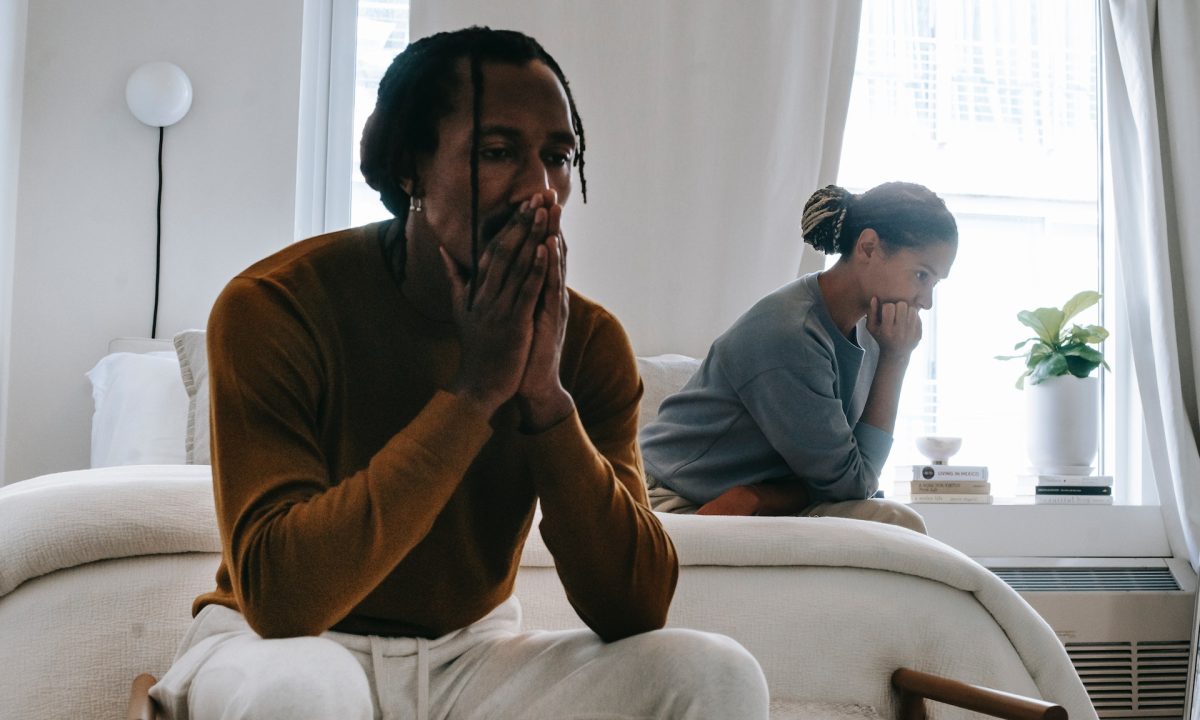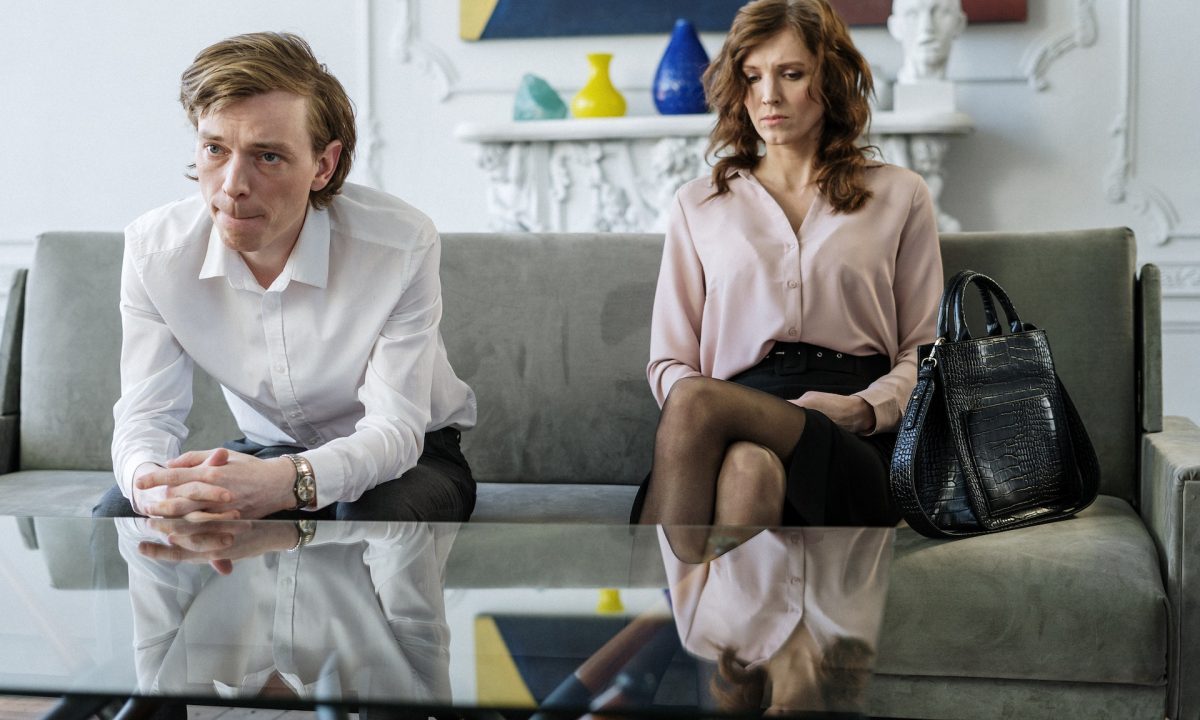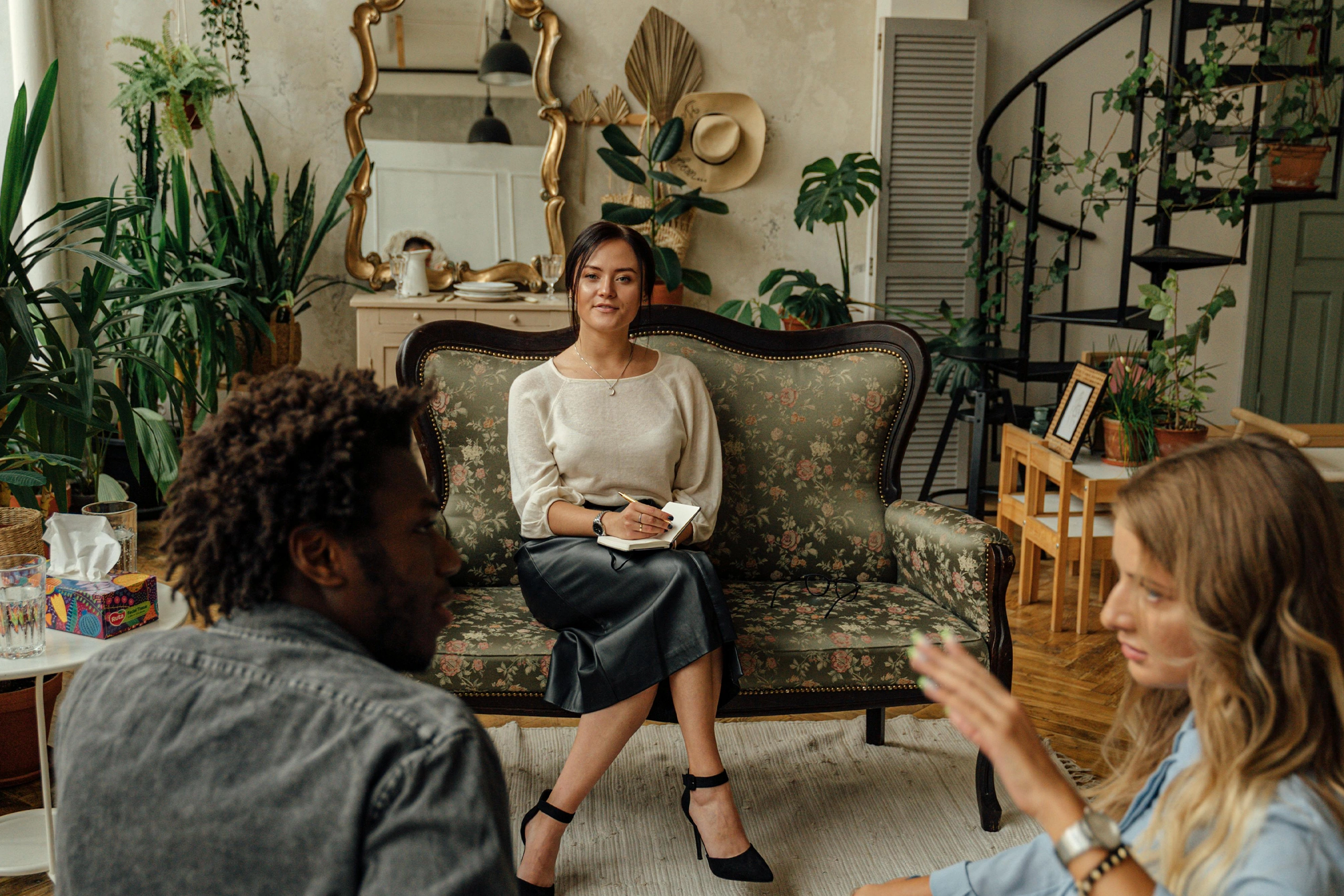Before we can know if couples therapy can help a toxic relationship, let’s define what we mean by “toxic”:
A toxic relationship is one in which both partners are in conflict a lot or most of the time.
In truth, I don’t love “toxic” as a term for conflict-ridden relationships, because it labels the relationship as bad through and through.
You know what’s more helpful than labeling a relationship as toxic?
Understanding the underlying dynamics that are creating long-lasting disconnection (toxicity) in your relationships.
This is where couples therapy comes in.
Couples Therapy Can Help Your Toxic Relationship—But Not How You Think . . .
A good emotionally focused couples therapist can help you understand and address the unconscious beliefs in your relationship that are creating the toxic dynamics you may be experiencing.
Think about it: When’s the last time you spent a focused hour reflecting on yourself and your relationship in a safe, facilitated environment?
Can you imagine how powerful and re-balancing that alone can be?
Couples therapy gives you the space and time to process, reflect, and make progress in your relationship.
Now here’s a therapy spoiler that you may not be eager to hear:
What you’ll discover in good couples therapy is that toxicity is almost always a two-way street.
You may be the type of person who feels like your partner is just not on your level emotionally, and you really want them to get it together.
And you may be right!
Your partner may be more wounded than you, so they may be more likely to pull you into conflict.
However, it’s important to understand how you’re contributing to the toxicity in your relationship, even if your partner is more wounded than you are.

So what are you doing to make your relationship toxic?
Well, there’s usually one person in a relationship (let’s call them Jo) who’s thinking:
“If only my partner could consistently be here for me with empathy and show me that I’m their priority, we could have such a good relationship.”
Meanwhile, their partner (let’s call them Pat) is thinking:
“If only my partner could see how hard I’m trying and accept me as I am, we could have such a good relationship.”
Can you see how these two peoples’ desires are totally valid and understandable, and yet they are at odds?
Let me paint a picture.
Imagine after a long day of work Pat and Jo are winding down for the night.
Jo gets in bed and asks Pat to come to bed because she wants some affection and closeness.
Pat wants to spend 30 minutes on his passion project, so he declines.
Jo feels sad because her need for physical closeness isn’t being prioritized by Pat, so she sighs and says “Ok, whatever” and turns away.
Pat feels upset because he loves Jo, and he’s being told non-verbally that he did something wrong, so he shuts down and becomes even less likely to be affectionate.
He just wants to feel like he is good enough and that this moment is ok.
And Jo just wants to feel like Pat is there for her and prioritizes her.
As you can see, both of their needs are valid, they just got sucked into a cycle of reactivity.
Over time—if Pat and Jo don’t learn how to create meaningful repair for—the pain of their conflicts may compound and fester and form a toxic relationship, where feeling prioritized or accepted seems impossible.

So, can couples therapy help a toxic relationship?
Yes.
In fact, according to A Review of the Research in Emotionally Focused Therapy for Couples, the initial level of relationship distress has no impact on the likelihood of success.
And “success” doesn’t end when the sessions do.
The National Library of Medicine says “Emotionally Focused Couples Therapy is an effective treatment, both in facilitating change during treatment, and in maintaining those improvements following treatment.
In my experience as both a recipient and facilitator of couples therapy, it’s the best thing you can do for your relationship.
But it matters that your therapist is trained to have a bird’s eye view of your toxic dynamic.
If your relationship isn’t where you want it to be, I recommend you try at least one session with a good Emotionally Focused Couples Therapist to gain insight into why your conflicts happen, and how to turn moments of conflict into moments of connection ASAP!
Can therapy help me LEAVE a toxic relationship?
Not every relationship can be saved.
Especially if by “toxic relationship” you actually mean an abusive one.
Here are some signs of an abusive relationship according to The National Domestic Violence Hotline:
- Telling you that you never do anything right.
- Showing extreme jealousy of your friends or time spent away from them.
- Preventing or discouraging you from spending time with others, particularly friends, family members, or peers.
- Insulting, demeaning, or shaming you, especially in front of other people.
- Preventing you from making your own decisions, including about working or attending school.
- Controlling finances in the household without discussion, such as taking your money or refusing to provide money for necessary expenses.
- …and more.
If this sounds like your relationship—or if you aren’t sure!—give the National Domestic Violence Hotline a call at 1-800 799 7233 and their advocates will walk you through your potential next steps.
These steps may include talk therapy (and I do suggest it!), but using abuse-specific resources will also connect you with other kinds of help that may be useful to you, such as protection and food, housing, and legal assistance.
But let’s say your relationship is toxic.
It’s not abuse, but you can’t see an end to the suffering in sight and you’re not even sure you want to try. You think you want out.
Emotionally-Focused Therapy is best equipped to help you make the decision to leave your toxic relationship and escape the very rational patterns that got you stuck there in the first place.
EFT works by rewiring your relationship to relationships through a few key perspective shifts and resonant emotional experiences.
Even if you’re not sure you want to leave your toxic relationship, going through a couples therapy program like Empathi‘s together will help you understand what is happening in yourself and your partner deeply enough to make a truly informed and secure decision.


